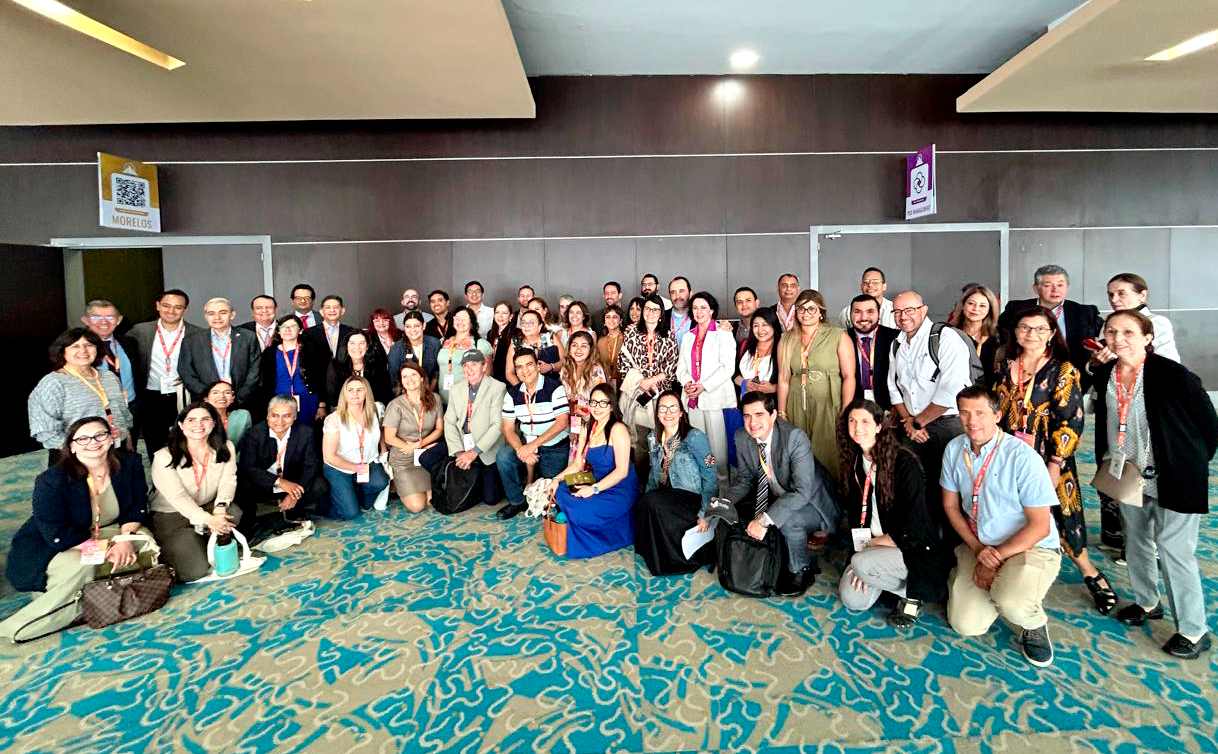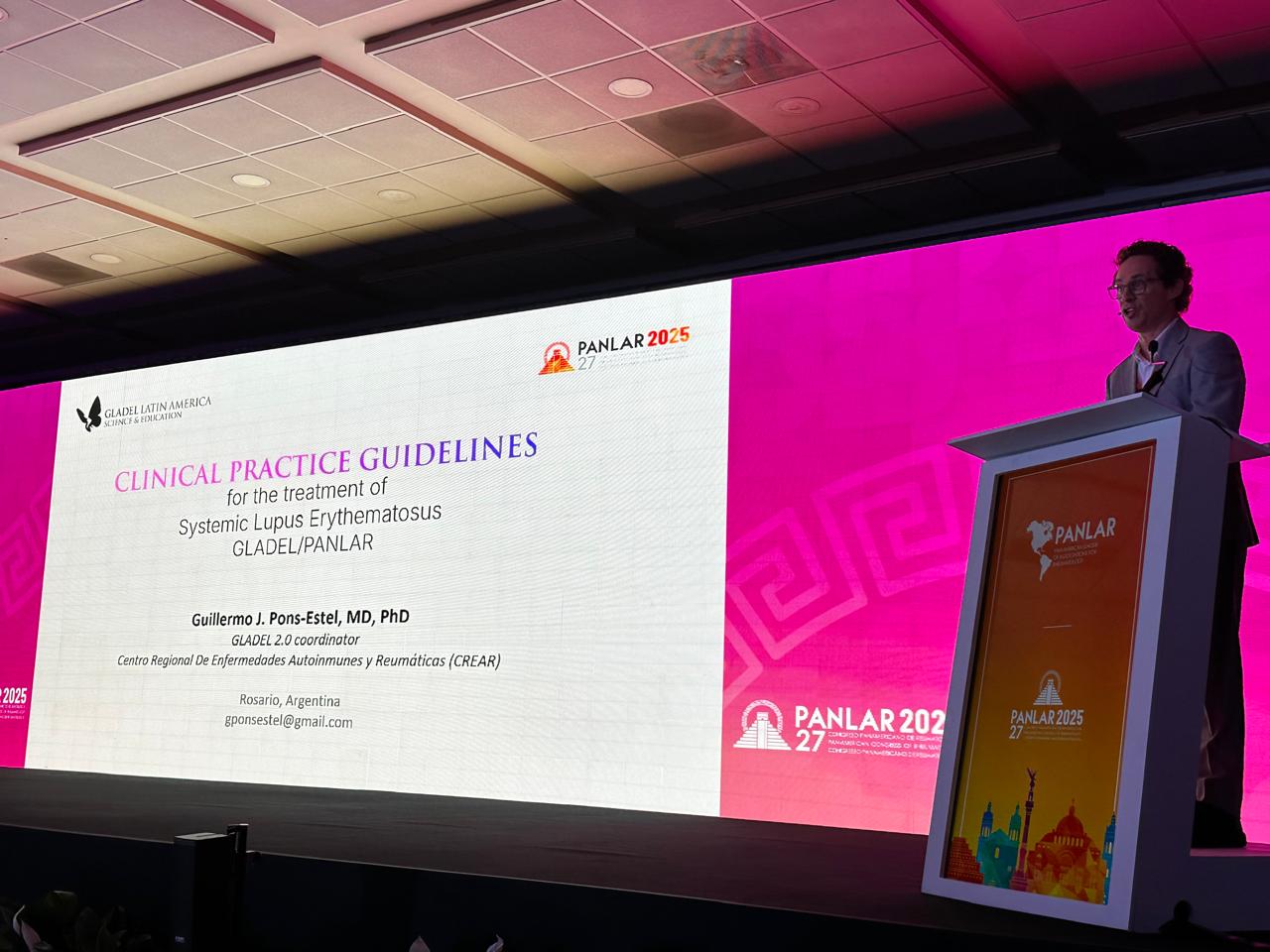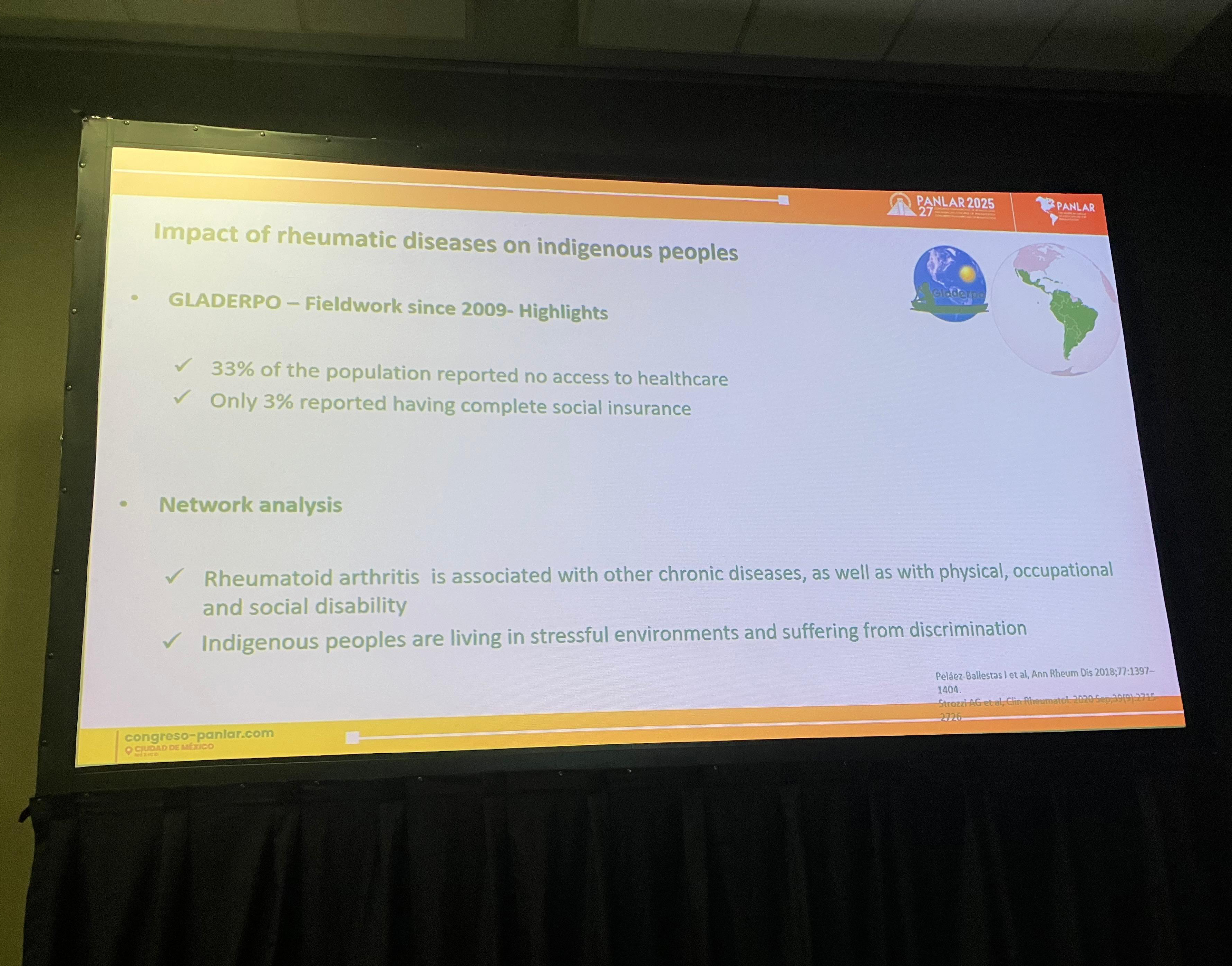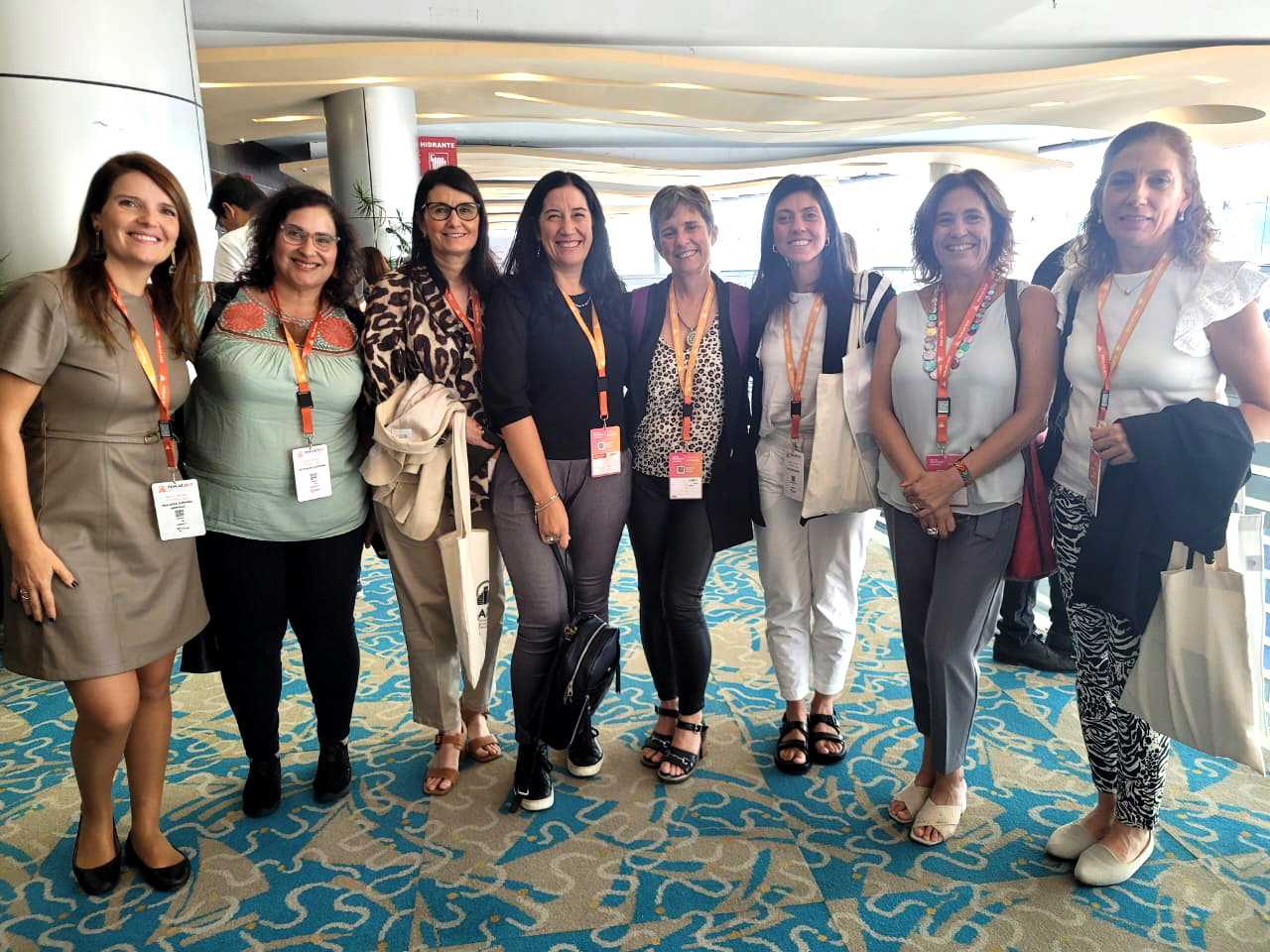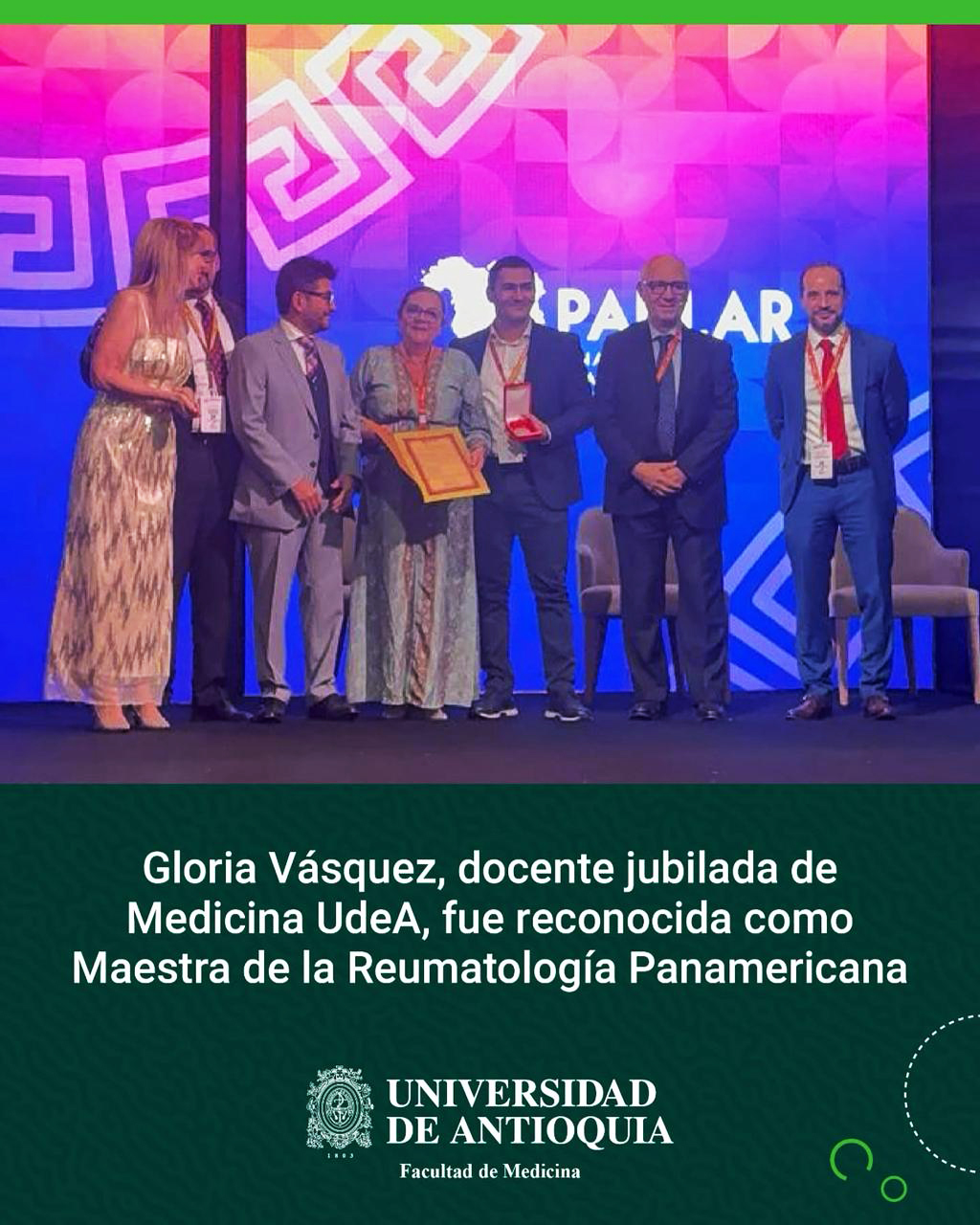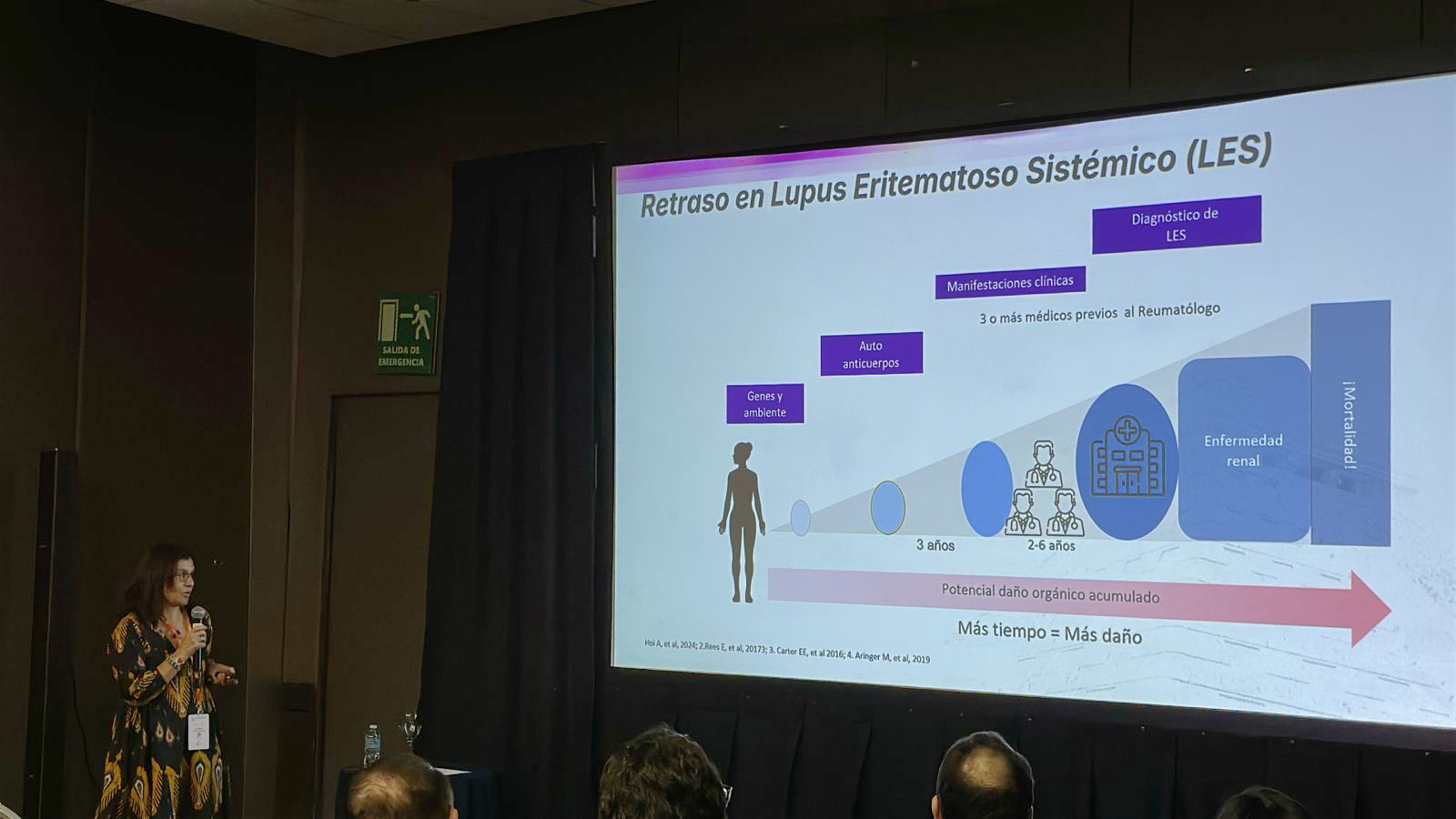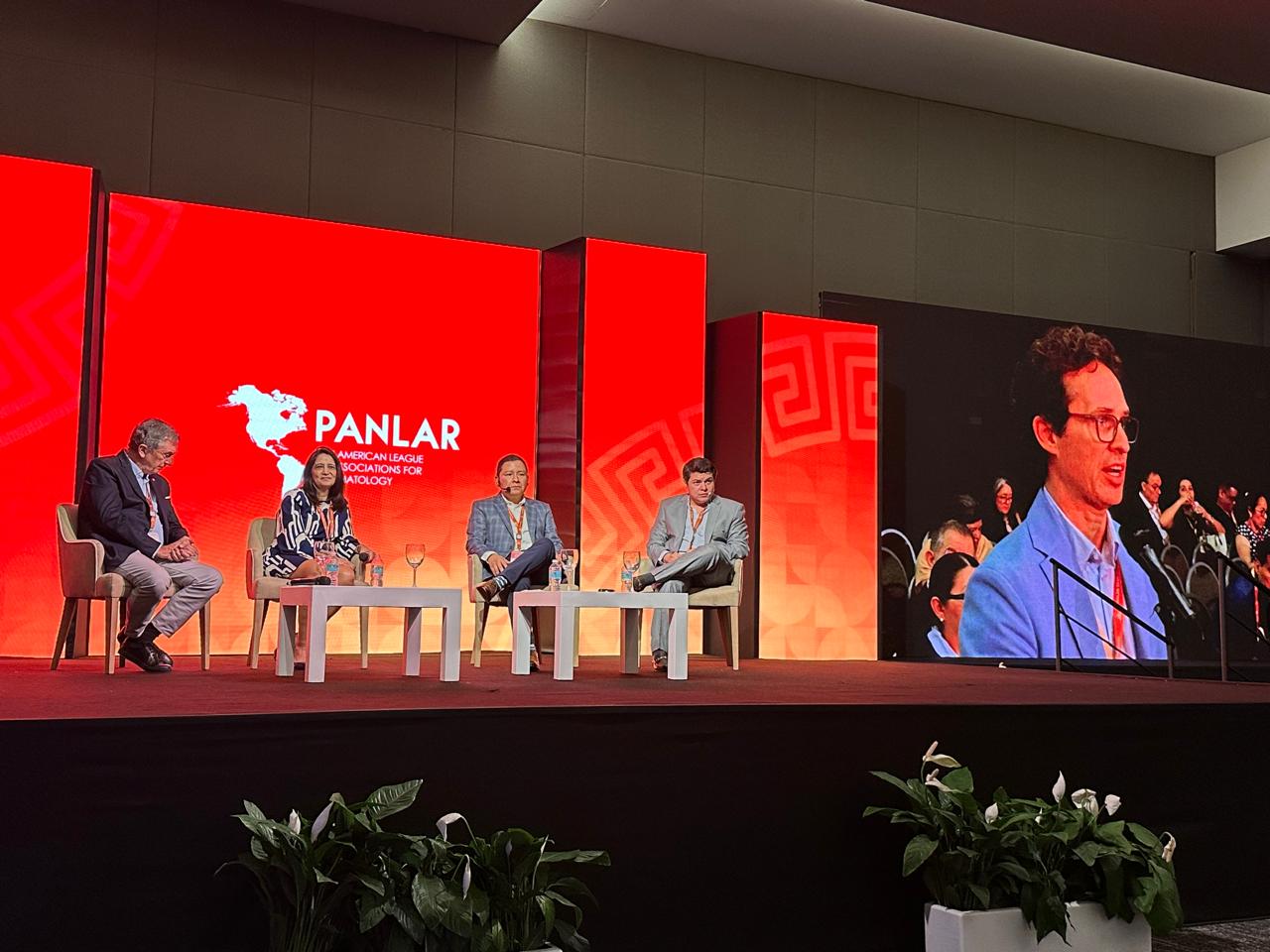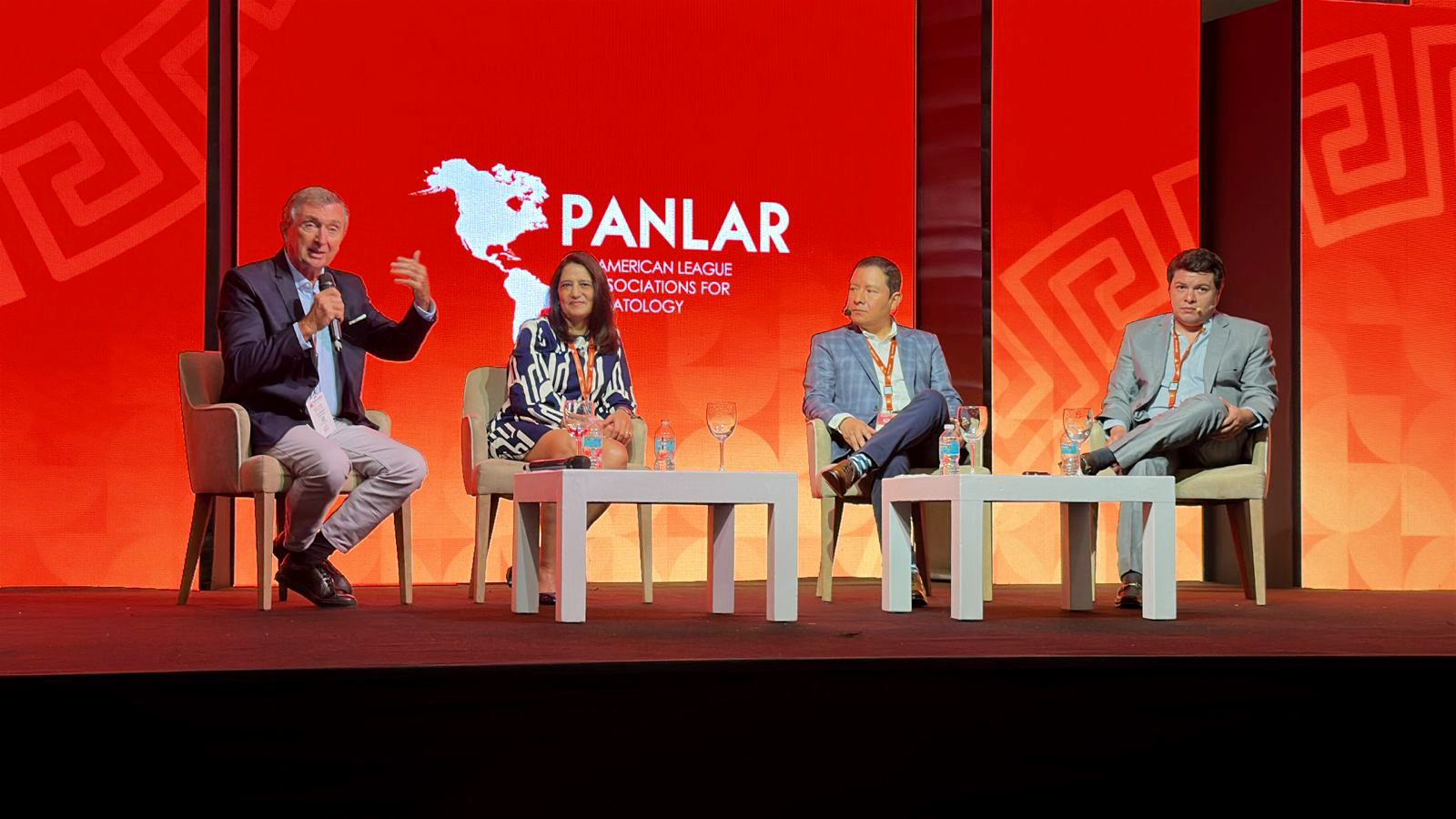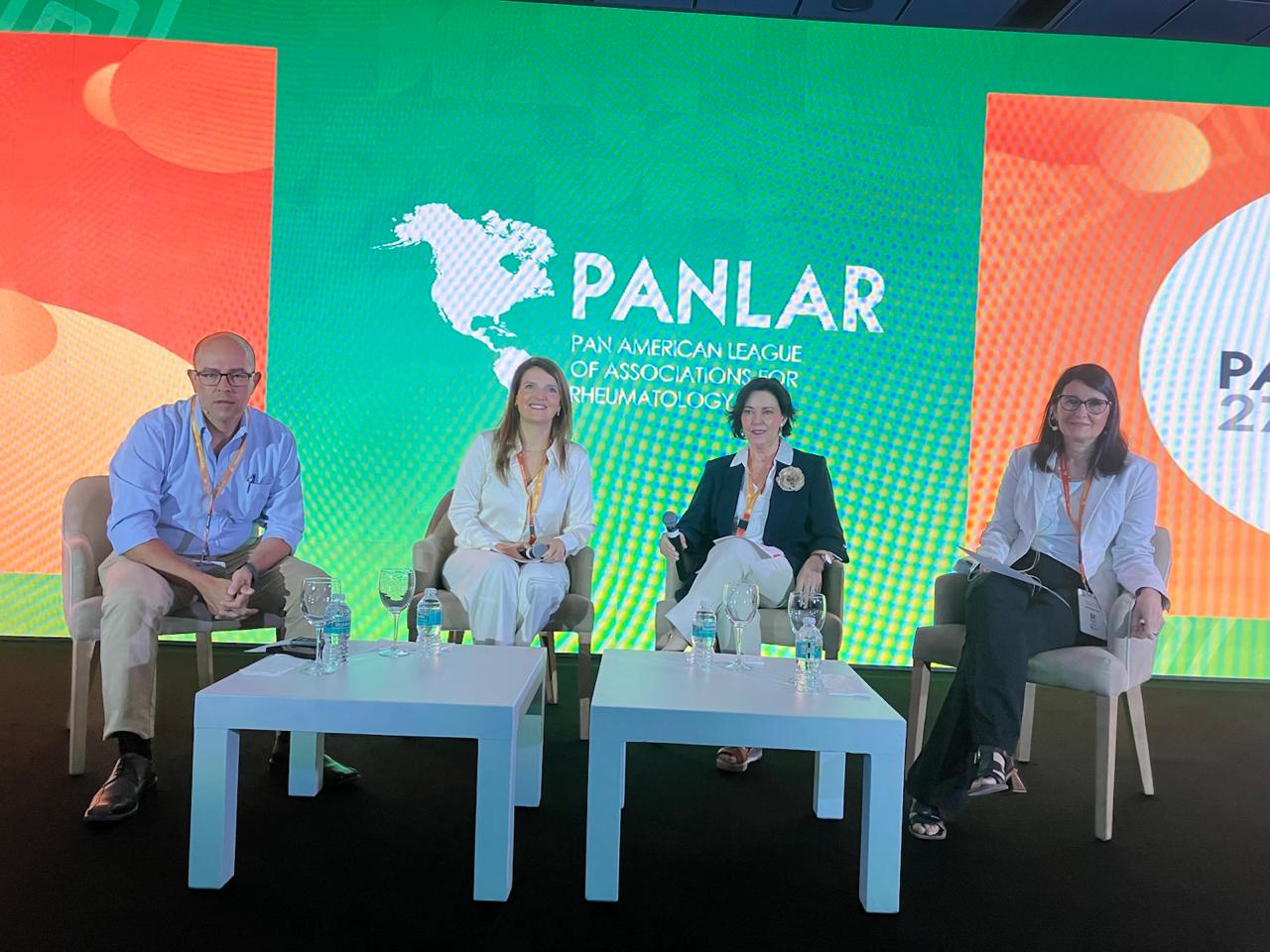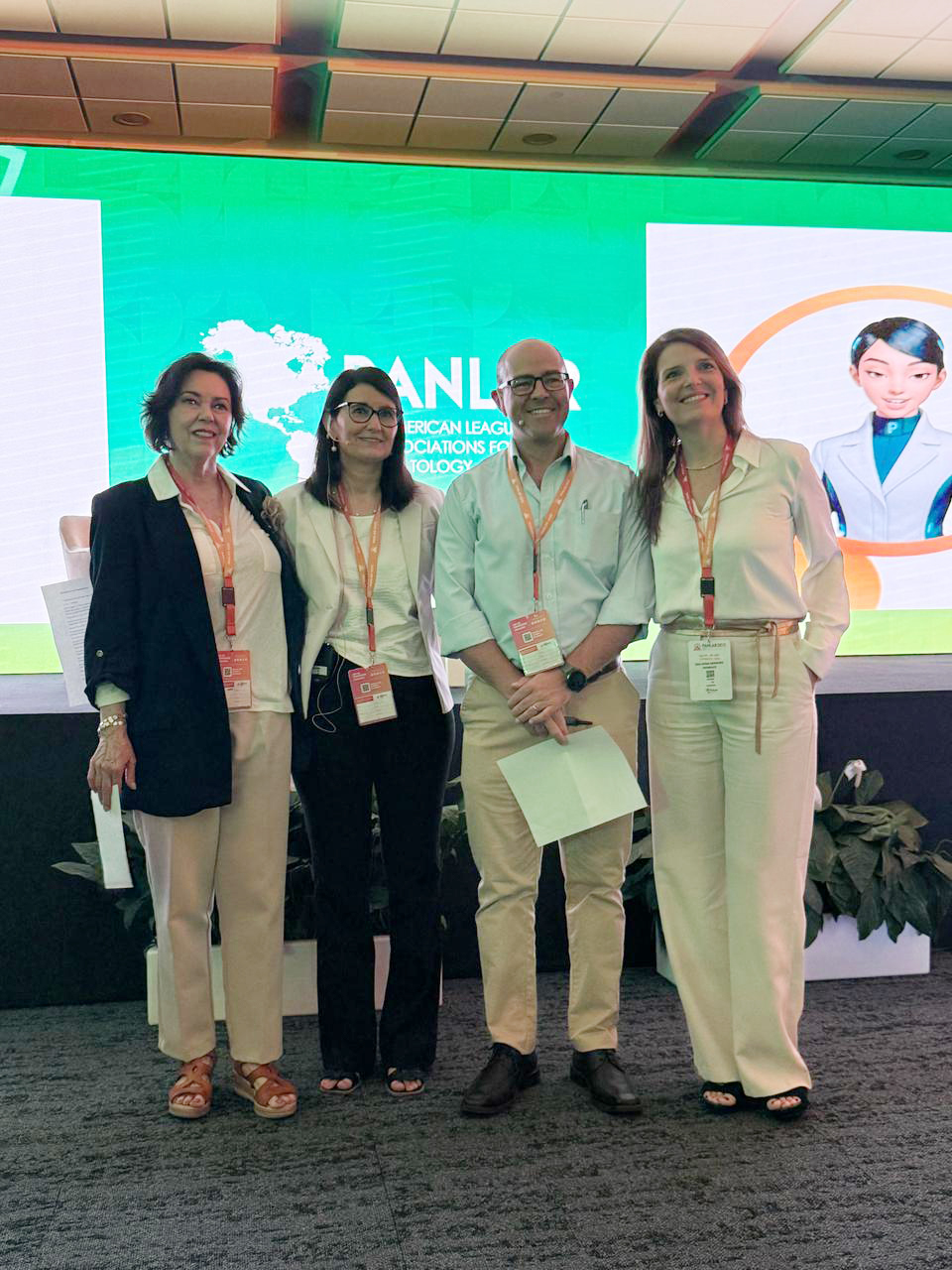GLADEL General Meeting at PANLAR 2025.
Consolidation, new projects and a look to the future.
Last April 24, within the framework of the PANLAR 2025 Congress held in Mexico City, GLADEL held its General Meeting in hybrid mode. The meeting took place in the Morelos Hall of Expo Santa Fe and gathered more than 130 participants—80 in person and approximately 50 virtually connected—coming from different Latin American countries.
Dr. Bernardo Pons-Estel, with Dr. Romina Nieto, Dr Rosana Quintana and Dr. Guillermo Pons-Estel, presented on the current state of the network. They reviewed the beginnings of GLADEL, founded in 1997 in Mexico with 34 centers in 9 countries, and its subsequent growth to more than 60 centers in 16 countries, with more than 200 active researchers. The current organizational structure, comprising its Executive, Extended, Scientific, Education and Data Control Committees, was also presented.
Among the main novelties, the creation of the Pediatric GLADEL Group -formalized in March 2025-, the launch of the new institutional website, the expansion of the presence in social networks and the progress of the Pro&Pub program, which in its first edition received 16 proposals, of which, 11 were selected for development.
The presentation also included a review of recent publications associated with the GLADEL network, with participation in congresses such as PANLAR, EULAR and ACR as well as high-impact scientific journals. The collaborative projects currently underway with international networks such as GLA-GENLES, RIBLES-CYTED, SURF SLE & APS, LUPUS-NET, NIH/NIAMS and Lupus Europa were also mentioned.
In the educational area, GLADEL highlighted three active lines: Hablemos de Lupus, an initiative for patients in Spanish and Portuguese, led by Dr. Cristina Drenkard; ¿Es Lupus?, aimed at primary care physicians, under the coordination of Dr. Isabel Acosta (Paraguay); and a new project aimed at medical specialists, focused on scientific updates on the disease, led by Dr. Manuel Ugarte (Perú).
GLADEL 2.0 Cohort: five years of follow-up and a projection to ten.
One of the central points of the meeting was the update on the GLADEL 2.0 cohort, which was initiated in May 2019 to study lupus nephritis. To date, 1083 patients and 980 controls, from 43 centers in 10 countries, have been included.
The data show a remarkable follow-up rate: 85% of patients continue to be monitored, with only 5% deaths and 10% losses. During the pandemic, the network experienced a 45% loss to follow-up; however, thanks to the collective effort, the majority of cases were recovered.
GLADEL provided details on the collection of biological samples (serum and urine) and their destination in centralized laboratories: Werfen (San Diego) and the University of Cincinnati. The first results presented already identify urinary biomarkers that could predict the evolution of renal disease.
Ninety-two percent of the centers expressed their willingness to extend the follow-up to ten years. Additionally, various modalities for future sample collection were discussed, with an annual collection being the preferred option.
Studies on diagnostic delay and direct health costs.
Another major focus of the meeting was the presentation of two new multicenter studies in progress.
The first, led by Dr. Ingris Peláez-Ballestas and coordinated by Dr. Rosana Quintana, seeks to estimate the delay in the diagnosis and treatment of lupus in Latin America. This is a four-phase mixed study that has already completed its systematic review and qualitative phase, with the participation of 15 countries and interviews with both patients and rheumatologists. The questionnaire is currently being constructed and validated. It will be applied to a representative sample of more than 13,000 patients, taking into account the social and clinical particularities as well as access to the health system in each country.
The second project, led by Dr. Adolfo Hernández, focuses on analyzing the direct medical costs associated with the care of SLE patients included in the GLADEL 2.0 cohort. Through a retrospective review of medical records and in collaboration with health economists, the study aims to determine the costs associated with consultations, hospitalizations, laboratory studies, treatments, and infusions. The design considers different scenarios based on the health system of each country (public, private, or mixed) and includes strategies for estimating costs when direct institutional data are unavailable. A second prospective stage with greater regional representativeness is also planned.
Closing, perspectives, and open call.
During the final session for questions and discussion, the road traveled was celebrated, and the importance of having solid networks, such as GLADEL, to generate scientific evidence with a real impact on health policies was emphasized.
It was noted that the studies on diagnostic delay and direct costs are open to the incorporation of new centers, and that GLADEL continues to work so that the knowledge generated in the region can serve as a driving force for transformation in the care of patients with lupus.
From GLADEL, we are deeply grateful to all the researchers, professionals, and participating centers for their commitment, enthusiasm and collaborative work, which continue to make possible the growth of this Latin American scientific network.
